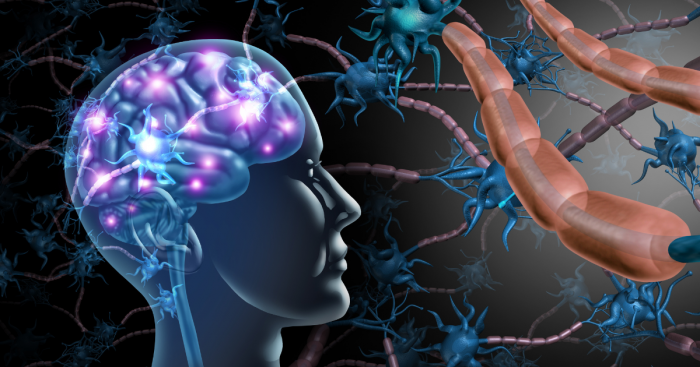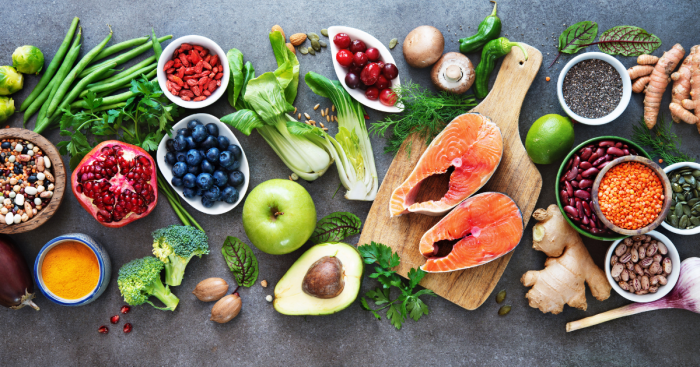For parents, there is probably nothing more gratifying than watching their children accept and eat everything that’s placed on the plate for them. Some children are easy going like that, while some others are quite the opposite. Especially for picky eaters who refuse to try new foods or who never eat more than two spoonfuls or who fuss over any kind of vegetable or meat in their bowl, every meal time could turn out to be a power struggle and a food fight!
While it may seem that the easy going group of children would turn out better nourished than their fussier counterparts, the reality is − it is not the quantity of food they eat but the quality of it that matters. Even overweight children can be malnutritioned. How can that be so? Because overnutrition is a form of malnutrition. The excessive intake of nutrients leads to an imbalance in the body due to an overload of one type of nutrient and a shortage of the others. The result is the accumulation of unused calories that turns into body fat. In the long run, overweight and obesity could bring on the deterioration of physical, cognitive, emotional and social development of the child.
Malnutrition is not measured by weight. Even children at the appropriate weight for their age may still be malnourished if they are not receiving the right levels of fiber, protein, vitamins and minerals in their diet.
The Link Between Brain Function, Nutrition and Learning Ability

When it comes to their learning ability and performance in school, diet and nutrition play an all-important role. Scientists have proven in numerous studies that our children’s brain function and their ability to focus, remain alert and attentive, process and absorb information and remember and apply all that they have learnt, are greatly affected by what they eat.
These studies say that a balanced, healthy diet can effectively grow new neurons – or nerve cells in the brain − in a process called neurogenesis. Neurogenesis is regulated by the hippocampus – a small structure located deep inside the brain. The right diet can increase neurogenesis in the hippocampus and this will lead to improvement of memory, learning, mood, attention, behaviour, mental health as well as body weight.
The right diet can also affect the synaptic plasticity of the brain. Synaptic plasticity is the number of connections between neurons. The more connections the brain makes between its neurons, the better they can communicate and the better they can think, learn, focus and remember.
Saturated Fats and Its Effect on Learning, Memory, Focus and Attention

Recent studies have revealed that a diet high in saturated fats and refined carbohydrates impair learning and memory. Not only that, it is also linked to childhood Attention Deficit Hyperactivity Disorder (ADHD) and obesity.
Unfortunately, foods high in saturated fats and high in refined carbohydrates are some of our favourite local fare. Nasi Lemak, Curry Laksa, Roti Canai, Char Kway Teow, Fried Rice and so on, are not only high in saturated fat but also high in salt and low in fibre. A high fat diet can lead to oxidative stress in the brain causing damage to the molecules inside brain cells while adversely affecting neuronal functions such as memory, learning and cognition.
Many of these standard Malaysian fare are also sold in school canteens alongside other favourites like Goreng Pisang, Fried Cempedak, Curry Puff, sugary syrups, carbonated drinks and other sweet or savoury deepfried confections. These foods and beverages may taste great and fill the stomach of our children but they are empty calories that lower brain power.
Why this is so is because of the effect of glucose and sugars in the higher-fat foods. Glucose comes from carbohydrates and while glucose is needed for energy, foods that are too high in glucose causes the body’s energy levels to plummet drastically.
This phenomenon applies not only to children but to adults too. When we binge out on high fat-high glucose diets, we too experience a post-food “crash” where the body has to shut down to process all this food. A child who eats saturated fats on a regular basis will experience a big drop in energy leading to a lack of focus, lethargy and even irritability in the classroom. In the long term, this kind of diet can result in damage to the kidneys, eyes, blood vessels and nerves − not a good prognosis for a child striving for academic performance.
Nutrients that Impact Brain Function and Learning Ability

1: Omega-3 Fatty Acids
However, not all fats are bad. While saturated fats hinder learning and growth, there is a very different class of fats that boost brain power. Omega-3 fatty acids, for example, have been shown by studies to improve brain function.
These fats belong to the chemical class of polyunsaturated fatty acids. There are three kinds: Docosahehexaenoic acid (DHA), Eicosapentaenic acid (EPA) and Alpha-linolenic acid or α-Linolenic acid (ALA). If children do not eat enough of these Omega-3 fatty acids, then inflammation and its negative cognitive effects may take place in the brain. In fact, Omega-3 fatty acids are an essential nutrient for brain development but because the body doesn’t make them, we have to get them from food.
A diet rich in Omega-3 fatty acids can decrease the risk of certain brain disorders and disease or mental health issues such as depression, anxiety and behavioural problems. DHA especially, has been found to increase neurogenesis, and repair and decrease the death of neurons that are injured. Many studies have indicated that taking DHA during pregnancy can improve the development of neurons in the unborn baby and giving DHA to a growing young child can increase neurogenesis and improve cognitive and learning abilities, memory, concentration, IQ, speech and reading. Aside from enhancing learning power, DHA also supports development of their eyes and nervous system.
2: B Vitamins
Mood, energy and mental performance are heavily influenced by the intake of the B vitamins. These vitamins reduce anxiety, depression, stress, headaches and the risk of heart disease.
A: Thiamin or Vitamin B1 is important for nerve function. Thiamin deficiency can lead to confusion, poor coordination and fatique. Interestingly, eating a diet consisting mainly of white rice or refined carbohydrates can cause a Thiamin deficiency resulting in Beriberi.
- Foods Rich in Vitamin B1 (Thiamin) include beans, lentils, green peas, pork, fish, seeds and yoghurt.
B: Riboflavin or Vitamin B2 acts as an assistant to enzymes in the body’s cells that carry out reactions in the body and brain. It also helps to grow cells. Among other problems, a deficiency can cause burning eyes and eye fatique. As a result, a child may show resistance to reading and writing due to visual disturbances.
- Foods Rich in Vitamin B2 (Riboflavin) include milk, yoghurt, cheese, almonds, hardboiled eggs and spinach.
C: Niacin or Vitamin B3 is an antioxidant that reduces inflammation. It works with more than 400 enzymes to produce cholesterol and fat needed in the body and converts energy for all the body’s system. Niacin is also essential for skin health and overall support of the nervous and digestive systems.
- Foods Rich in Vitamin B3 (Niacin) include red meat, poultry, fish, brown rice, bananas.
D: Panthothenic Acid or Vitamin B5 supports overall brain health and is essential for making a molecular compound called Coenzyme A to build and breakdown fatty acids for energy.
E: Pyridoxine or Vitamin B6 is notable for its ability to fight or prevent diseases and supports the immune function, influences brain process and development by helping to develop neurotransmitters. In some cases it can improve memory loss and ADHD.
- Foods Rich in Vitamin B6 (Pyridoxine) include bananas, legumes, eggs, sunflower seeds.
F: Biotin or Vitamin B7 regulates cell signals for quick and efficient communication. In the brain, it is crucial for cellular signalling via neurotransmitters.
- Foods Rich in Vitamin B7 (Biotin) include beef liver, eggs, Salmon, avocados, sweet potatoes.
G: Folic Acid/Folate or Vitamin B9 is a key vitamin for supporting brain and neurological health, cellular detoxification, optimal neurotransmitter function and balanced psychological health. Folic Acid deficiency in children can slow growth rate, cause increased irritability and lead to behavioural disorders.
- Foods Rich in Vitamin B9 (Folic Acid) include fruits, dark green leafy vegetables, beans, sunflower seeds.
H: Cobalamin or Vitamin B12 is essential for brain development, neural myelination and cognitive function. Inadequate Vitamin B12 intake during early childhood has been associated with adverse health outcomes, including impaired cognitive development. It is also an essential vitamin for forming red blood cells, DNA and supporting the development of the nervous system.
- Foods Rich in Vitamin B12 (Cobalamin) include fish, meat, poultry, eggs and dairy products.
3: Iodine
Iodine is a dynamic micronutrient that is responsible for regulating the thyroid function, support a healthy metabolism and aiding the growth and maintenance of the brain structure and function through the actions of the thyroid hormone. Among young children whose brains still need Iodine for development during the first two years of life, a deficiency in Iodine has been demonstrated to affect cognitive and motor development and school performance.
- Foods Rich in Iodine include seaweed, fish and shellfish, milk, cheese yoghurt, eggs, beef liver.
4: Zinc
Zinc is vital for enhancing memory, thinking and learning. It is also essential for strengthening the immune system, cell growth, vision and fertility. Zinc modifies communication between certain neurons, especially within the hippocampus as well as other parts of the brain that govern olfactory (sense of smell), auditory (hearing) and somatosensory (sense of touch) perception.
- Foods Rich in Zinc include dark chocolate, lamb, seafood, dairy products, pumpkin seeds.
5: Vitamin K
Vitamin K participates as an important constituent of brain cell membrane and brain metabolism. Therefore cognitive function and brain power are dependent on Vitamin K for optimal performance. Its other functions include blood clotting, preventing heart disease and building strong bones.
- Foods Rich in Vitamin K include broccoli, spinach, basil, cabbage, kale and even chili powder.
6: Vitamin E
Vitamin E is an antioxidant that is necessary for embryonic development, neurogenesis and cognition. It can prevent or slow down cognitive decline and boost memory and is necessary for healthy eyes and skin because it protects the cells from damage.
- Foods Rich in Vitamin E include nuts, seeds, avocado, tofu, green leafy vegetables.
Children’s Healthy Diets Linked to Higher IQ

According to two studies − one held in Australia involving 7,000 children, and one in the UK involving 14,000 children − those that were fed diets low in sugars, fats and processed foods from an early age had a slightly higher IQ than those fed on junk foods high in fats and sugars, and other nutritionally deplete diets. Both studies tracked and compared the diets of children below the age of 15 months to eight years where they were then given an IQ test to examine the results. Both studies came to the conclusion that children fed diets that were packed full of nutrients and vitamins, had slightly higher IQs – “up to two points higher by age eight,” states the Australian study.
Morinaga Chil-kid
As mentioned above, milk has been recommended as one of the nutrient-dense foods needed for children’s brain development and function.
Morinaga Chil-kid is a fortified growing up milk specially formulated for children’s growing up needs. Formulated in Japan for children aged one to seven, Morinaga Chil-kid is packed with 45 essential nutrients necessary for the optimal growth and development of the fast-growing child.
The nutrients include ARA+DHA as well as ALA, vitamins B1, B2, B3, B5, B6, B7, B9 and B12, Iodine, Zinc, Vitamin K1 and Vitamin E.
Apart from its brain-centric nutrients, Morinaga Chil-kid is also fortified with Nucleotides and Galacto-oligosaccharides (GOS), Iron, Calcium, Vitamin A and many more.
Made with a balanced ratio of protein, fat and energy, this formulation − designed specifically according to Asian children’s physique − complements their dietary needs and helps them achieve their daily Recommended Nutrition Intake (RNI).
Morinaga Chil-kid uses milk from dairy cows in the Netherlands and is packed in a state-of-the-art plant in the Netherlands where it goes through stringent quality assurance processes and a double inspection in Japan before it is released into the market.
For more information on Morinaga Chil-kid, please visit the website here




